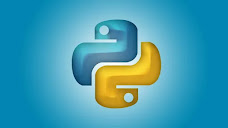Tips to learn Coding
10 Tips to Master the Art of Coding
Coding is a skill that has become increasingly relevant in today's technology-driven world. Whether you're a beginner just starting out or an experienced programmer looking to refine your skills, mastering the art of coding can open up a world of opportunities. Here are ten valuable tips to help you on your journey to becoming a proficient coder.
1. Choose the Right Language
The first step in learning to code is selecting the right programming language. Consider your goals and interests. Are you interested in web development, data science, mobile app development, or something else? Each field has its preferred languages. For beginners, languages like Python are recommended due to their readability and versatility.
2. Understand the Basics of Computer Science
Before diving into coding, grasp the fundamental concepts of computer science. Concepts like algorithms, data structures, and problem-solving techniques form the foundation of coding. Online courses and textbooks can provide you with a solid understanding of these principles.
3. Start with Simple Projects
Begin with small, achievable projects. These can range from creating a basic calculator to a simple website. Starting small helps build your confidence and progressively improves your skills. As you gain more experience, you can move on to more complex projects.
4. Practice Regularly
Consistency is key to learning coding. Dedicate a specific amount of time each day to practice coding. Regular practice helps reinforce concepts and develop muscle memory. Even spending as little as 30 minutes a day can yield significant results over time.
5. Learn from Others' Code
Reading and analyzing existing code is an excellent way to learn. Explore open-source projects on platforms like GitHub. By studying others' code, you can gain insights into different coding styles, best practices, and problem-solving techniques.
6. Debugging is Learning
Bugs and errors are an inevitable part of coding. Instead of getting frustrated, embrace debugging as a valuable learning experience. Debugging teaches you to analyze your code critically and enhances your problem-solving skills.
7. Break Down Problems
When faced with a complex coding problem, break it down into smaller, manageable tasks. This approach, known as decomposition, makes it easier to tackle each part individually and gradually build up to a complete solution.
8. Seek Feedback
Don't hesitate to share your code with others and ask for feedback. Online coding communities, forums, and social media platforms are great places to connect with fellow coders. Constructive feedback can help you identify areas for improvement and learn new techniques.
9. Explore Diverse Resources
There's no shortage of learning resources available online. From interactive coding platforms like Codecademy and freeCodeCamp to video tutorials on YouTube, you have a wealth of options. Mix and match resources to find the ones that resonate best with your learning style.
10. Build Real-World Projects
Applying your coding skills to real-world projects is an invaluable learning experience. It helps you understand how different components work together and exposes you to the challenges that developers face daily. Building a portfolio of projects also showcases your skills to potential employers.
In conclusion, learning to code is a rewarding journey that requires patience, dedication, and a growth mindset. By following these ten tips, you can lay a strong foundation and steadily progress toward mastering the art of coding. Remember that coding is not just about writing lines of text; it's about problem-solving, creativity, and contributing to the ever-evolving landscape of technology.


Comments
Post a Comment